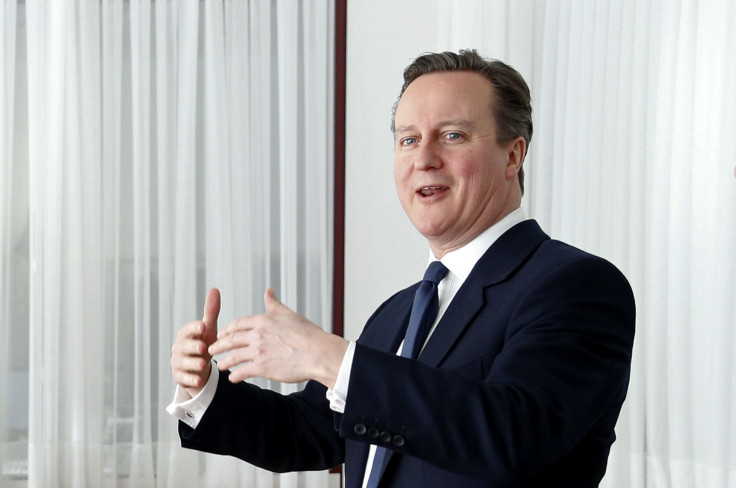Brexit: No Deal At Late Night Session Of EU Summit As Talks Continue For Second Day

European leaders failed to reach a deal to stave off a possible "Brexit," after working through most of the night at a summit in Brussels.
British Prime Minister David Cameron left talks with European Council President Donald Tusk and European Commission President Jean-Claude Juncker at 5:30 a.m. CET (11:30 p.m. EST Thursday).
Tusk said there had been "some progress" on the first day of the Brussels summit, but "a lot still remains to be done." A second round of formal talks began Friday morning. Although a deal is supposed to be secured by the end of the summit Friday, Cameron told reporters that he would “happily stay until Sunday,” raising the prospect of talks dragging on into the weekend.
Cameron's proposals reportedly met with an unexpected degree of resistance from other European leaders. In particular, the duration of a so-called “emergency brake,” which would allow the U.K. to temporarily restrict in-work benefits paid to EU migrants in the country, as well as treaty changes required to allow the U.K. to opt out of the bloc's stated goal of an “ever closer union,” met with pushback from other leaders.
In addition, France and Belgium have pushed for the insertion of a “take it or leave it” clause into any deal, which would make it clear that any agreement arising out of the summit was the U.K.'s final offer, and could not be renegotiated in the event of an "out" vote. They also sought to ensure that other nations could use any U.K. deal as a precedent to renegotiate their own relationship with the EU, the Independent reported.
French President François Hollande is also insisting that new EU rules for Britain should maintain strict financial regulation in the bloc. He said that Britain should not be given any "right of veto or blockage" and that all EU countries should have rules limiting speculation and avoiding new financial crises, according to the Associated Press.
Reuters quoted German Chancellor Angela Merkel as saying it had become "clear that agreement will not be easy for many, but that the will is there." Italian Prime Minister Matteo Renzi told Reuters Friday he was less optimistic than before about the prospects for an agreement, after some backward steps occurred on the first day of the summit.
Cameron has said that he will not accept a compromise deal that does not deliver what the U.K. wants.
In Britain, Cameron's Euroskeptic critics have branded the negotiations a sham, saying that even if the reforms Cameron wants are achieved, Britain would still not be able to block EU laws, or to reduce the scale of EU migration to the country, the BBC reported.
The U.K. is seeking changes to its relationship with the EU in four key areas. On the economic front, it wants an acknowledgement that the euro is not the bloc's official currency, so countries that do not use it are not at a disadvantage, and wants to ensure that steps toward further financial union will not be imposed on non-eurozone nations. In addition, it wants to reduce the burden of regulation coming from Brussels on member states.
It also wants to be able to restrict social benefits to EU migrants coming to the country, an idea that has met with resistance from some eastern European leaders. In addition to opting out of “ever closer union,” the U.K. also wants to give member states' parliaments greater powers to block EU legislation they don't want.
If Cameron secures a deal at the summit, he will first discuss it at a cabinet meeting in London and, if it secures ministers' support, is likely to quickly proceed with holding an in-out referendum, possibly as early as June. In the event a deal is secured, Cameron has pledged to campaign for voters to keep the U.K. in the EU.
© Copyright IBTimes 2025. All rights reserved.






















